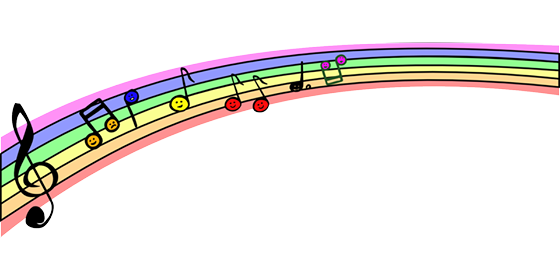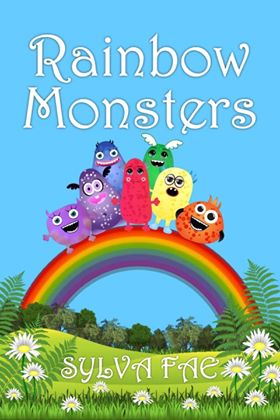
Continuing to feature the etymology of book titles: this article is in association with Mom’s Favorite Reads.
Mom’s Favorite Reads is an international community of readers and authors. Check out their web page above! Today’s author spotlight is on: Sylva Fae.

What a marvellous image is conjured by this word: rainbow. We think of colour and light, and it is a cheerful thought, despite the rain.
Given the miserable weather on the island where English arose, it comes as no suprise that this word has been in the language for a very long time. Let’s take a look at its passage through the centuries. We shall go first to 1450, to that stage of our language known as Middle English. At a distance of so many centuries, you might reasonably expect the word to be different, so you will be disappointed in our quote from the Middle English translation of Macer Floridus de Viribus Herbarum, originally a hexameter poem in Latin.
for his floures hauyn colour like þe reinbowe.
[For his flowers have colour like the rainbow.]
Aside from the very small difference in spelling, the word is very familiar and easily recognisable. But we won’t stop there. Let’s take a small leap a little further back into Middle English, to 1387, where we find John Trevisa’s Translation of the ‘Polychronicon‘ of Ranulph Higden.
if þat stoon is i-holde aʒenst þe sonne, it schal schape a reynbowe
[If that stone is held against the sun, it shall shape a rainbow.]
Again, the only major difference is in the spelling. I find it rather reassuring that this sentence, written so long ago, could easily be heard today. Underneath all our modern technology, we are still the same, and can still enjoy the pretty patterns caused by the sun striking a stone. But let’s return to our word. We shall now track it back into Old English, where we have two quotes from the 7th century. The first is from the Anglo Saxon version of Genesis:
Ic sette mínne rénbogan on wolcnum
[I set my rainbow on the clouds]
Here the word is renboga, here used in the accusative form as renbogan. You can see it in the nominative in our final quote, from a work by Caedmon:
rénboga cymþ of ðam sunbeáme and of wǽtum wolcne
[The rainbow comes of the sunbeams and of wet clouds.]
The language is now much less familiar, and more difficult for your average speaker of Modern English to understand, especially when compared with the Middle English version. But the word ‘rainbow‘ is not radically different. We can find cognates of it in other Germanic languages: Swedish regenbåge, Dutch regenboog, German Regenbogen. Having established that this is a Germanic word, we shall now split it easily into two parts: rain + bow.
The first part means, you’ve guessed it, rain. It derives from the Proto-Germanic root *regna, also meaning rain, and, as with the compound word, there are cognates in many other Germanic languages. The second part, bow, comes from Old English boga, the second element in renboga in the quotes above. This word meant bow, as in the weapon used for archery, but also anything bent or curved or arched: hence its use for rainbow, in reference to the shape. It derives from Proto-Germanic *bugon, which in turn is from the Proto-Indo-European root *bheug-, meaing ‘to bend’. And here comes the final twist in our tale: a word that also derives ultimately from *bheug-, and is thus a cognate of ‘bow’ is something you might find on your plate: bagel.

The inspiration for today’s article comes from Sylva Fae with her book Rainbow Monsters, available here.

Interesting….